Peak Performance | Superior Durability | Patagonia's New Rubber
Patagonia is known for creating the highest quality products, while also leaving the smallest carbon footprint possible. Patagonia’s approach is simple: Don’t reinvent the wheel, but tweak the spokes to make it technically superior, and better for the environment at the same time. This philosophy is apparent in the quality of their apparel, and particularly their new line of wetsuits.
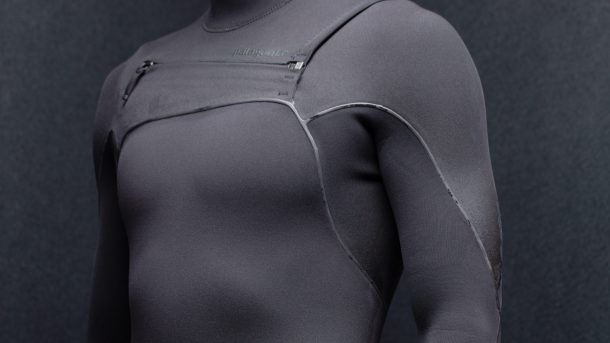
Patagonia entered the wetsuit market at a time dominated by a few key brands and getting a slice of the pie looked daunting. How did Patagonia rise to be one of the top brands in the wetsuit industry so quickly? The answer starts with a problem. Patagonia is based in Ventura California, right by the beach. Most of the staff surfs, kites, or both and they were wearing out at least one suit a year, sometimes two. This life span was deemed unacceptable so they set out to make a longer lasting wetsuit, with no compromise in quality. Patagonia’s passionate staff, and proximity to surf drives their wetsuit line at full speed and has brought them to the top after just a few years.
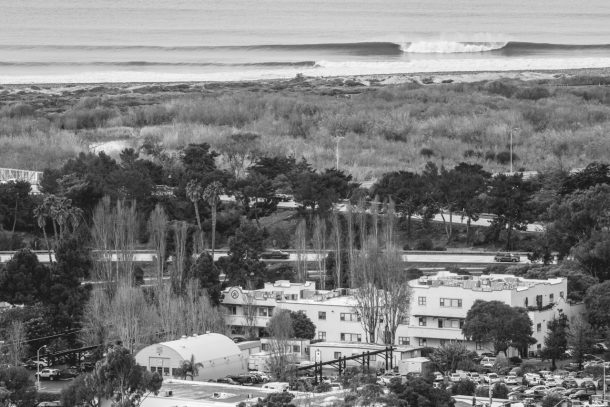
Do you ever wonder who is designing your suit? Do they kite? Do they surf? Patagonia’s lead wetsuit designer, Glen Morden does both. This dude froths over sessions more than just about anyone and is always stoked to be on the water.
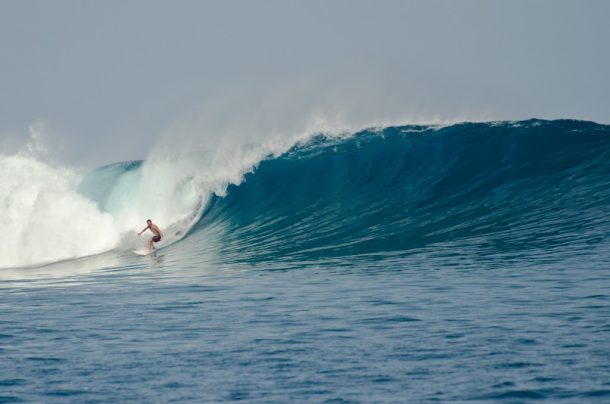
Glen designs these suits with feedback from Patagonia Ambassadors, in house staff and you, the customer. Patagonia listens to feedback, and makes changes when they need to be made. Thats why Patagonia wetsuits perform at the highest level for both kiting and surfing.
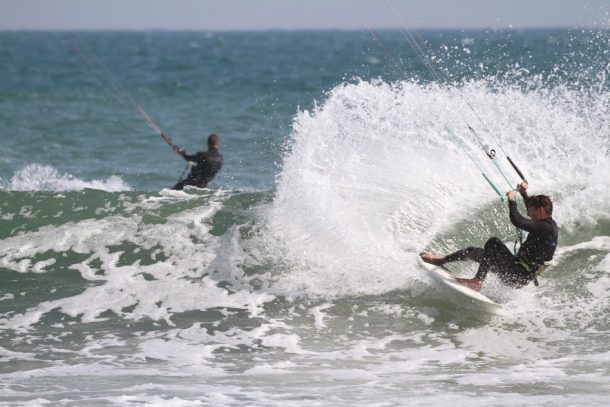
*WARNING: YOU ARE ABOUT TO ENTER THE ECO ZONE*
All environmental aspects aside, Patagonia’s new wet suits offer the same comfort and flexibility of other top brands with a much longer lifespan. They set out to make a superior suit; and with constant refinement have made an excellent product. By having their headquarters so close to the beach, they can literally test a new cut the day they make a suit, then head back to the R&D shop to revise as needed. Patagonia never releases a new product just to make something look different. With every release there are significant design improvements geared towards the performance of the suit. The new formula for neoprene is strong, and very flexible to compete with other top wetsuit’s. By being so involved with the sports their suits are designed for, the designers at Patagonia are always tuning their suits to have better flexibility, durability, and comfort.
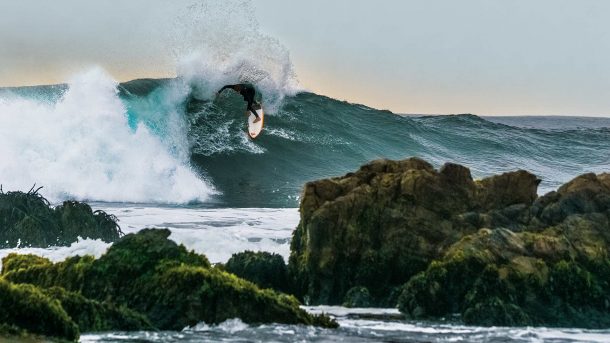
When Patagonia first introduced wetsuits they used Merino Wool as a liner to add insulation while minimizing environmental impact. The Neoprene of a wetsuit really is the biggest petroleum based portion of the suit. In order to make a environmentally friendly suit the biggest part to tackle is the rubber itself. Patagonia partnered with Yulex, and started FSC (Forest Steward Leadership) approved farms in Guatemala to produce stretchy, strong, and environmentally safer rubber.
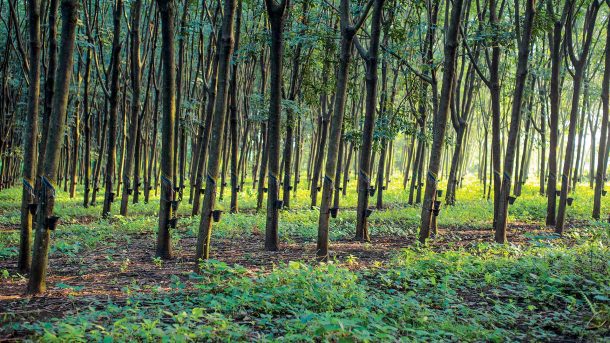
As eco friendly monikers become more prominent in the market it is important to pay attention to the FSC seal on your gear. There are farm’s similar to what Patagonia has created popping up around the world. While some will bear the same FSC stamp there are many operations mostly based in Asia that are clear cutting rain forest to make way for plantations, these clear cut farms are making non petroleum based rubber, but also doing a lot of damage along the way and this is not good. In an effort to save the planet, and be generous, Patagonia is not patenting their new rubber. Patagonia has not only shared their new technology, but they are also teaching other brands how to properly source materials from FSC certified farms.
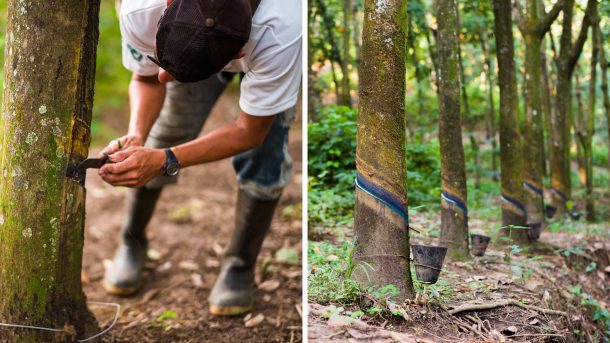
Patagonia has always been synonymous with quality; you can expect their gear to last the longest in the industry. When a Patagonia garment fails, they have an incredible staff based in Ventura California ready to repair your gear in a timely fashion. Check out their Warranty page for the details: patagonia.com/wetsuitwarranty
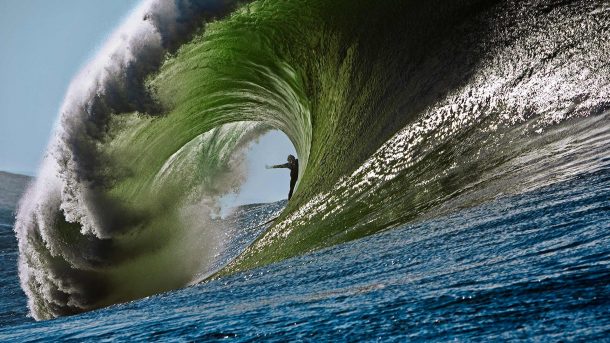
We’re impressed by Patagonia’s new line of suits. They stretch well, are durable, look sharp, fit well, and are backed by Patagonia’s legendary warranty and customer service. As a huge bonus these suits are also as environmentally friendly as currently possible. It’s great to not have to balance a good suit, with an environmentally friendly option. Patagonia nailed both with their latest line of wetsuits. If you are not already considering a Patagonia Wetsuit for your quiver, put this lineup on the top of your list.
REAL has the full line of Patagonia Yulex wetsuits in stock now! Check out all of the models here: PATAGONIA WETSUITS
Patagonia went away from the traditional 3/2, 4/3, 5/4 wetsuit thickness ratings as they have found inconsistency in how these thicknesses are measured. Patagonia uses their “R” system which is based on water temp. If you are used to the traditional measurements, here is the run down:
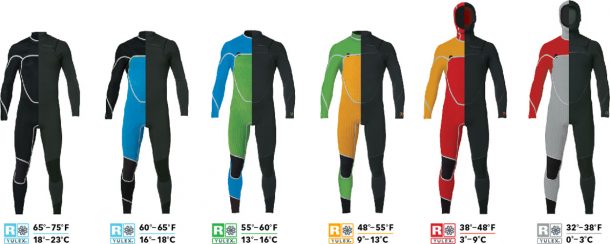
Men’s Wetsuit Size Chart:
| SIZE | HEIGHT | WEIGHT | CHEST | WAIST | HIPS | NECK | INSEAM |
|---|---|---|---|---|---|---|---|
| XS | 5’6″-5’8″ | 120-140 | 34½-36½ | 28½-30½ | 33½-35½ | 14½ | 26-28 |
| S | 5’8″-5’10” | 135-155 | 36½-38½ | 29-31 | 34-36 | 15 | 27-29 |
| MS | 5’6½”-5’8½” | 140-160 | 38½-40½ | 30½-32½ | 35½-37½ | 15½ | 27-29 |
| M | 5’9″-5’11” | 150-170 | 38½-40½ | 30½-32½ | 35½-37½ | 15½ | 28-30 |
| MT | 6’1″-6’3″ | 160-180 | 38½-40½ | 30½-32½ | 35½-37½ | 15½ | 30-32 |
| LS | 5’7½”-5’9½” | 160-180 | 40½-42½ | 32½-34½ | 37½-39½ | 16 | 28-30 |
| L | 5’10”-6′ | 170-190 | 40½-42½ | 32½-34½ | 37½-39½ | 16 | 30-32 |
| LT | 6’2″-6’4″ | 180-200 | 40½-42½ | 32½-34½ | 37½-39½ | 16 | 31-33 |
| XLS | 5’8½”-5’10½” | 180-200 | 42½-44½ | 34½-36½ | 39½-41½ | 16½ | 30-32 |
| XL | 5’11”-6’1″ | 190-210 | 42½-44½ | 34½-36½ | 39½-41½ | 16½ | 31-33 |
| XLT | 6’4″-6’5″ | 200-220 | 42½-44½ | 34½-36½ | 39½-41½ | 16½ | 32-34 |
| XXL | 6’2′-6’4″ | 210-230 | 42½-46½ | 36½-38½ | 41½-43½ | 17 | 31-33 |
| XXXL | 6’3″-6’5″ | 230-250 | 44½-48½ | 38½-40½ | 43½-45½ | 17½ | 31-33 |
If you have questions about your size, differences in models, or anything please reach out to a REAL Pro by calling (252) 987-6000, or email us REALpro@realwatersports.com. With Cape Hatteras water temperatures ranging from 40 to 80 we have a lot of experience with the full line of Patagonia wetsuits.

